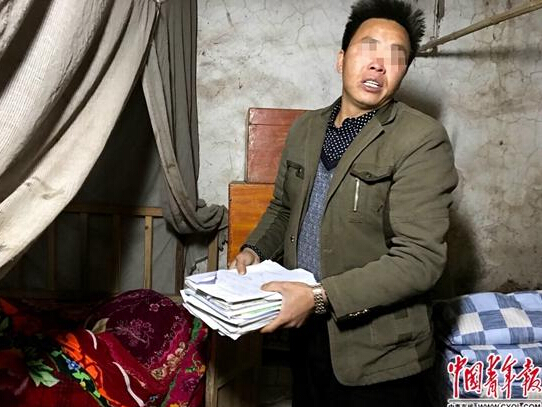Old man, with 14 broken ribs dies in custody
A 64-year-old man suspected of attempting to set a fire died on Jan. 19, 2017, while in custody at a detention center in Xinning Police Bureau, Hunan Province, the local police confirmed on Feb. 8.
According to the police, the suspect Xu Yunbo, died from a combination of respiratory and adrenal failures, electrolyte disturbance, alcoholic liver cirrhosis and ascetic fluid.
But Xu Hongmei, Xu’s daughter, was skeptical of the official declaration.
“My father could not live a life by himself. He was unable to control himself and spoke ambiguously. But the police insisted that he confessed to attempting to set a fire, ,”Xu said.
Insisting on his father’s innocence, Xu obtained a forensic examination about 20 days after his detention, from which her father was confirmed to have a mental illness. This illness can mislead him indistinguishing between right and wrong.
He was still held in custody after this judicial evaluation.
According to his daughter, Xu was admitted to hospital on Nov. 16, 2016, with 14 broken ribs, almost three months after his detainment. But he was sent back to the detention center only one month after being hospitalized which infuriated Xu’ family, who believed that he had not yet fully recovered.
Xu did not return to hospital until Jan. 18, after he experienced fatal symptoms caused by the complications of his health condition.
The post-mortem exam is underway and the result is expected to be announced in due course.
According to the local police bureau, the posthumous issues of Xu should proceed in line with the regulations on the death of people in police custody, a legal framework mandated by the Supreme People’s Procuratorate, the Ministry of Public Security and the Ministry of Civil Affairs.
